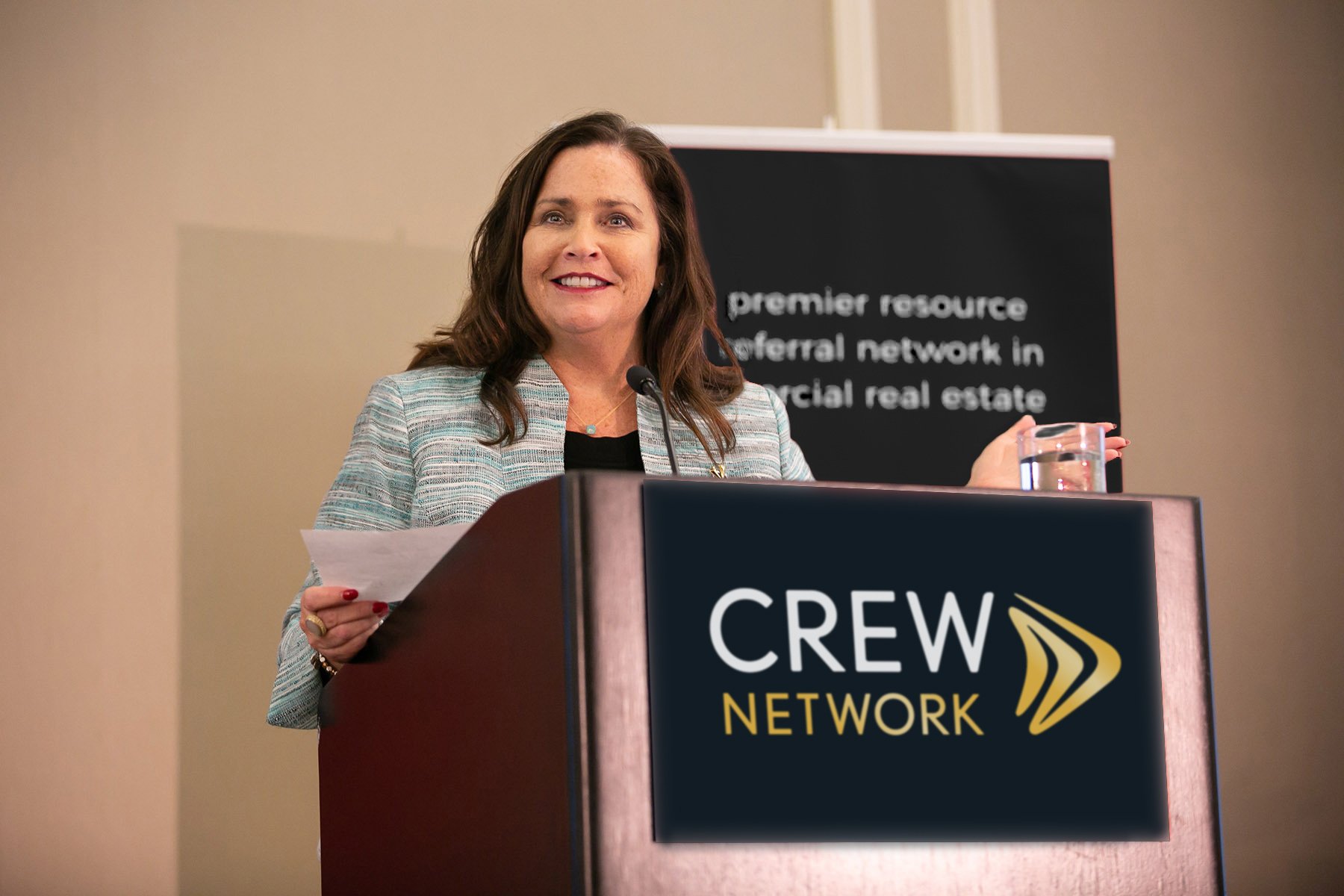CHICAGO—InvenTrust Properties Corp. is turning its attention to a pure-play retail strategy, according to Michael E. Podboy, EVP, chief financial officer, chief investment officer and treasurer at the firm. InvenTrust, which changed its name last year from Inland American Real Estate Trust, has been aggressively acquiring and disposing of properties across the country. Last month alone, the company spent $330 million on retail properties, and an announcement in January verified that the firm was exiting the student housing market to focus on retail. To find out more about the inner workings of this strategy we sat down with Podboy for an exclusive interview. Here, he tells all about the firm's strategy and where they are headed.
GlobeSt.com: Tell me about InvenTrust's investment strategy.
Michael E. Podboy: Our overall strategy is focused on becoming a pure-play retail REIT with a simplified and targeted portfolio. Our plan has been and will continue to be to focus on investing in select key markets primarily within the sunbelt states that meet certain criteria such as significant population and wage growth, above average demographics and strong barriers to entry that make new competition difficult. We target grocery anchored and necessity-based centers that generate strong rent growth.
We refer to our geographic concentration strategy as a hub-and-spoke model. Once we establish a presence in the hub—typically an urban area that meets these criteria—we build out our spokes. This means targeting properties with similar characteristics in the surrounding communities and submarkets.
On the disposition side of the equation, we are reducing the number of markets in which we own and operate properties with an overall focus on disposing properties that do not meet our criteria. Our objective is to reinvest the capital from these divestitures to acquire properties that fit our go-forward strategy.
GlobeSt.com: What was the reason for the shift?
Podboy: Since our inception, InvenTrust assembled a $12 billion portfolio of assets with a focus on the credit quality of tenants and the length of their lease term. Our portfolio was initially made up of various asset classes and located in disparate geographic markets with a majority of our assets being purchased before the economic downturn.
In the past couple of years, our strategy has shifted to a more focused, single asset portfolio model. We believe that our pure-play retail strategy in high-growth target markets will allow us to maximize value for InvenTrust stockholders.
GlobeSt.com: You have made several acquisitions and dispositions in the past eight weeks, do you anticipate this transaction activity to continue through the year?
Podboy: We anticipate this portfolio rotation to continue for the next 18 to 24 months. We take a disciplined but active approach to acquisitions and have seized on recent opportunities in the marketplace. InvenTrust's latest acquisitions have checked all the boxes with our retail portfolio growth characteristics and we will continue to be in the market for properties in high-growth, high-traffic markets throughout the year.
We have also conducted a detailed analysis of our properties and markets on the disposition side. Currently, we are looking to divest our non-strategic properties that we consider to have limited growth potential in low or no growth secondary or tertiary markets. We also consider a market non-strategic if InvenTrust has limited geographic concentration or the ability to build concentration in the market to achieve property management cost savings. Moving forward, this disposition activity will help fund future acquisitions.
GlobeSt.com: How are you funding these acquisitions?
Podboy: We have a strong balance sheet that provides flexibility to execute on our acquisition strategy, and we expect our current balance sheet structure will provide sufficient 'dry powder' to execute on additional acquisitions in our target markets over the next 18 to 24 months.
Currently, we are acquiring properties in all-cash transactions that are funded through dispositions and an existing credit facility.
GlobeSt.com: What have been the challenges you've hit in the market?
Podboy: Our acquisition strategy is focused on pursuing high-quality properties. Through our network and relationships we are still able to secure deals as our recent acquisitions indicate. We remain disciplined and active on the acquisition front.
On the disposition side, a large number of buyers for our properties are using leverage and as the debt markets have been choppy, the number of bidders has decreased. As a result, cap rates and pricing in some markets are flattening out. In turn, it is generally taking longer to execute on the dispositions but has not impacted on our ability to execute on disposition deals.
GlobeSt.com: How does the real estate cycle play a role here? Some people think that we are hitting the top of the market and are at peak pricing. Do you have any concerns about timing?
Podboy: We monitor cycles but we focus closely on fundamentals in the marketplace. With fundamentals for retail real estate continuing to be positive we are cautiously optimistic regarding future growth.
Due to limited new development, a low supply of quality space for lease and retailers expanding at a disciplined pace, rents continue to increase. Retailers are also embracing a 'bricks and clicks' or omni-channel business model. Even in the e-commerce space, companies are finding that it is critical to have a physical presence in key markets.
CHICAGO—InvenTrust Properties Corp. is turning its attention to a pure-play retail strategy, according to Michael E. Podboy, EVP, chief financial officer, chief investment officer and treasurer at the firm. InvenTrust, which changed its name last year from Inland American Real Estate Trust, has been aggressively acquiring and disposing of properties across the country. Last month alone, the company spent $330 million on retail properties, and an announcement in January verified that the firm was exiting the student housing market to focus on retail. To find out more about the inner workings of this strategy we sat down with Podboy for an exclusive interview. Here, he tells all about the firm's strategy and where they are headed.
GlobeSt.com: Tell me about InvenTrust's investment strategy.
Michael E. Podboy: Our overall strategy is focused on becoming a pure-play retail REIT with a simplified and targeted portfolio. Our plan has been and will continue to be to focus on investing in select key markets primarily within the sunbelt states that meet certain criteria such as significant population and wage growth, above average demographics and strong barriers to entry that make new competition difficult. We target grocery anchored and necessity-based centers that generate strong rent growth.
We refer to our geographic concentration strategy as a hub-and-spoke model. Once we establish a presence in the hub—typically an urban area that meets these criteria—we build out our spokes. This means targeting properties with similar characteristics in the surrounding communities and submarkets.
On the disposition side of the equation, we are reducing the number of markets in which we own and operate properties with an overall focus on disposing properties that do not meet our criteria. Our objective is to reinvest the capital from these divestitures to acquire properties that fit our go-forward strategy.
GlobeSt.com: What was the reason for the shift?
Podboy: Since our inception, InvenTrust assembled a $12 billion portfolio of assets with a focus on the credit quality of tenants and the length of their lease term. Our portfolio was initially made up of various asset classes and located in disparate geographic markets with a majority of our assets being purchased before the economic downturn.
In the past couple of years, our strategy has shifted to a more focused, single asset portfolio model. We believe that our pure-play retail strategy in high-growth target markets will allow us to maximize value for InvenTrust stockholders.
GlobeSt.com: You have made several acquisitions and dispositions in the past eight weeks, do you anticipate this transaction activity to continue through the year?
Podboy: We anticipate this portfolio rotation to continue for the next 18 to 24 months. We take a disciplined but active approach to acquisitions and have seized on recent opportunities in the marketplace. InvenTrust's latest acquisitions have checked all the boxes with our retail portfolio growth characteristics and we will continue to be in the market for properties in high-growth, high-traffic markets throughout the year.
We have also conducted a detailed analysis of our properties and markets on the disposition side. Currently, we are looking to divest our non-strategic properties that we consider to have limited growth potential in low or no growth secondary or tertiary markets. We also consider a market non-strategic if InvenTrust has limited geographic concentration or the ability to build concentration in the market to achieve property management cost savings. Moving forward, this disposition activity will help fund future acquisitions.
GlobeSt.com: How are you funding these acquisitions?
Podboy: We have a strong balance sheet that provides flexibility to execute on our acquisition strategy, and we expect our current balance sheet structure will provide sufficient 'dry powder' to execute on additional acquisitions in our target markets over the next 18 to 24 months.
Currently, we are acquiring properties in all-cash transactions that are funded through dispositions and an existing credit facility.
GlobeSt.com: What have been the challenges you've hit in the market?
Podboy: Our acquisition strategy is focused on pursuing high-quality properties. Through our network and relationships we are still able to secure deals as our recent acquisitions indicate. We remain disciplined and active on the acquisition front.
On the disposition side, a large number of buyers for our properties are using leverage and as the debt markets have been choppy, the number of bidders has decreased. As a result, cap rates and pricing in some markets are flattening out. In turn, it is generally taking longer to execute on the dispositions but has not impacted on our ability to execute on disposition deals.
GlobeSt.com: How does the real estate cycle play a role here? Some people think that we are hitting the top of the market and are at peak pricing. Do you have any concerns about timing?
Podboy: We monitor cycles but we focus closely on fundamentals in the marketplace. With fundamentals for retail real estate continuing to be positive we are cautiously optimistic regarding future growth.
Due to limited new development, a low supply of quality space for lease and retailers expanding at a disciplined pace, rents continue to increase. Retailers are also embracing a 'bricks and clicks' or omni-channel business model. Even in the e-commerce space, companies are finding that it is critical to have a physical presence in key markets.
© 2024 ALM Global, LLC, All Rights Reserved. Request academic re-use from www.copyright.com. All other uses, submit a request to [email protected]. For more information visit Asset & Logo Licensing.









